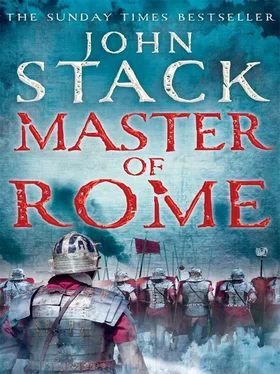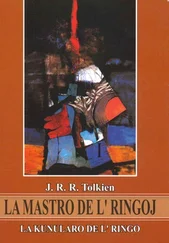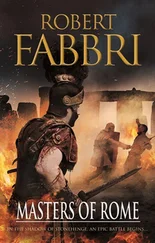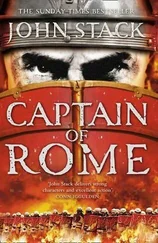John Stack - Master of Rome
Здесь есть возможность читать онлайн «John Stack - Master of Rome» — ознакомительный отрывок электронной книги совершенно бесплатно, а после прочтения отрывка купить полную версию. В некоторых случаях можно слушать аудио, скачать через торрент в формате fb2 и присутствует краткое содержание. Жанр: Исторические приключения, на английском языке. Описание произведения, (предисловие) а так же отзывы посетителей доступны на портале библиотеки ЛибКат.
- Название:Master of Rome
- Автор:
- Жанр:
- Год:неизвестен
- ISBN:нет данных
- Рейтинг книги:4 / 5. Голосов: 1
-
Избранное:Добавить в избранное
- Отзывы:
-
Ваша оценка:
- 80
- 1
- 2
- 3
- 4
- 5
Master of Rome: краткое содержание, описание и аннотация
Предлагаем к чтению аннотацию, описание, краткое содержание или предисловие (зависит от того, что написал сам автор книги «Master of Rome»). Если вы не нашли необходимую информацию о книге — напишите в комментариях, мы постараемся отыскать её.
Master of Rome — читать онлайн ознакомительный отрывок
Ниже представлен текст книги, разбитый по страницам. Система сохранения места последней прочитанной страницы, позволяет с удобством читать онлайн бесплатно книгу «Master of Rome», без необходимости каждый раз заново искать на чём Вы остановились. Поставьте закладку, и сможете в любой момент перейти на страницу, на которой закончили чтение.
Интервал:
Закладка:
The crew of the Orcus roared in spontaneous hostility, a vengeful demand for the loss of their comrades, retribution for the Carthaginian attack. Atticus let them roar, knowing his men needed their measure of revenge. The corvus was a weapon of the legionaries, a device that distanced the sailing crew from the fight, but the ram was theirs, and with it the crew of the Orcus would bring death to the Carthaginians.
Hamilcar roared in frustration as he watched the defence of his rear descend into rout, many of his galleys turning away from the fight by mindlessly fleeing east with the current, their course taking them directly into the main body of the Roman fleet, a net that would trap them all. He shouted orders to the signalmen, who relayed them to the fleet in an effort to stem the retreat, but only the galleys in the immediate vicinity of the Alissar took heed, their proximity to the command ship steadying their nerve.
Hamilcar ordered the helmsman to turn northwest to cut through the previous battle line. The Alissar was followed by no more than a handful of Carthaginian galleys, their passage unnoticed in the chaos of battle. Hamilcar moved to the port side, his hands kneading the rail in anger as he watched the destruction of his fleet, his earlier plan to bolster the fragile morale of his crews having ended in catastrophe.
A lone galley caught his attention and he suddenly ran back to the tiller, pushing the helmsman aside to take command of the rudder. He looked once more to the Roman galley, more than a half league away, its banners clearly visible, the enemy ship slowly withdrawing its ram from a stricken galley. A surge of energy shot down his arm and his grip tightened on the tiller, his arm trembling with muscle tension, his every instinct calling on him to turn, the conflict filling his head.
From the moment the rear of his fleet had been attacked, Hamilcar had known who was leading the assault, the direction of attack precluding all other alternatives. He had sent the rear-guard back to pin down the Greek’s squadron, but Perennis had obviously refused the bait and sailed past them, a move that had cost Hamilcar the battle. During the frantic minutes when he had tried to rally his fleet, he had forgotten that realization, but now, with the Greek’s ship in sight, he remembered.
He became conscious of the tiller beneath his hand, the force of his grip numbing his fingers. Half a league separated him from the Greek, the sea between them dominated by the advancing Romans. With a shout of anger he ripped his hand away, striding across the deck to stand at the side rail, frustration assailing him.
As he was heavily outnumbered, Hamilcar had never hoped to overcome the Roman fleet; but to turn their vanguard and withdraw his own fleet in good order would have been a victory in itself, a victory the Greek had taken from him. Now all that remained was ignominious retreat.
CHAPTER THREE
Atticus sat in the stern of the skiff as it meandered through the crowded harbour of Aspis, the heat of the day and the gentle swell adding to his sense of fatigue as he watched the oarsmen thread their way through the Classis Romanus. He had barely slept in the two days since the battle at Cape Hermaeum, the demands of his rank too numerous, and even now his mind refused to quiet, the unknown fate of two of his galleys gnawing at his thoughts.
Atticus recalled the names of the two ships, adding them to the bottom of the list in his mind, beneath the nine galleys of his command that were already confirmed lost in battle. Given the enormous size of the Roman fleet and the addition of over a hundred captured enemy galleys, there was still hope that some of the crews had somehow survived. As a fellow sailor, Atticus had nursed that hope, but as a commander he had already accepted that the galleys were lost with all hands.
The constant noise surrounding Atticus finally interrupted his thoughts. The air was filled with the sounds of preparation and repair, of hammers resounding against timber and iron, with the din occasionally cut through by the lash of a boatswain’s command. Atticus sat straighter in the boat and dipped his hand over the side, cupping a handful of water and splashing it over his face, the salt smell filling his senses, refreshing him.
Ahead lay the inner harbour. Atticus scanned the rows of galleys. He saw the flagship almost immediately, standing apart from its neighbours, and he indicated his destination to the two oarsmen. As they changed direction, Atticus stood up and shuffled past them to stand in the bow, the skiff rocking gently beneath him as it moved into the shadow of the towering hull of the Concordia.
Atticus called up for permission to board and then clambered up the ladder to the main deck. A crewman was waiting for him and led him below to the main cabin, knocking on the door lightly before showing Atticus in. The room was cramped, with the normal spartan furnishing of a warship augmented by two couches in the centre of the cabin and an enormous strongbox against the stern wall. The two consuls were reclined on the couches and Atticus stepped forward, standing at attention and reciting his name.
‘Ahh, Prefect Perennis,’ Paullus said, swirling a goblet of wine in his hand, a wry smile on his face. He turned to the junior consul seated beside him. ‘This is the man I was telling you about, Servius. The Greek captain Regulus promoted.’
Nobilior nodded slowly, looking at Atticus with a studious gaze.
‘Your squadron fought well, Prefect,’ Paullus said.
‘Thank you, Consul.’
‘In fact,’ Paullus continued, his tone suddenly wary, ‘I would go so far as to say that although our victory was assured, your squadron’s arrival hastened our triumph.’
Atticus noted the inflection in the consul’s words, the implicit demand for agreement, and he was immediately on his guard.
‘Yes, Consul,’ he replied, and Paullus nodded, satisfied the prefect knew his place. The senior consul had already drafted his report of the battle for the Senate, taking special care to ensure full credit for the victory would fall on his shoulders, while the report also spoke favourably of the junior consul. Beyond that, Paullus had no intention of sharing his triumph with any of his subordinates, and certainly not with a lowly Greek.
‘Very good, Perennis,’ he said, his expression genial once more. ‘Report to the aft-deck and wait for me there with the other prefects.’
Atticus saluted, turned on his heel and left the room. Paullus watched him leave and then slowly raised himself from his couch, drinking the last of his wine as he crossed the cabin. He placed his goblet on a table, fingering the rim of it lightly as he glanced once more at the cabin door. Perennis had acquiesced without hesitation and Paullus was left with a sliver of doubt. The Greek was either very naive or very shrewd.
Atticus looked astern as he came back on deck. The aft-deck was covered by a canvas awning, a shade against the sunlight for the officers surrounding the chart table that had been set up in front of the tiller. The officers were legionaries and Atticus surmised they were all former tribunes, drafted from the army to serve as prefects in the expanding Roman fleet. As Atticus approached the table, one of them looked up.
‘What is it, sailor?’ he asked brusquely.
Atticus smiled. ‘Prefect,’ he replied, and he stood amongst them, looking down at the charts, conscious that every eye was on him.
‘Who in Hades are you?’ one of the officers asked, and Atticus looked up, the smile still on his face.
‘Atticus Milonius Perennis,’ Atticus replied, and he noticed the flash of recognition on the Roman’s face.
‘The Greek,’ he said, and Atticus’s smile evaporated, the Roman’s derisive tone enraging him. He made to respond but the officer looked past Atticus and suddenly shot to attention, the others following suit.
Читать дальшеИнтервал:
Закладка:
Похожие книги на «Master of Rome»
Представляем Вашему вниманию похожие книги на «Master of Rome» списком для выбора. Мы отобрали схожую по названию и смыслу литературу в надежде предоставить читателям больше вариантов отыскать новые, интересные, ещё непрочитанные произведения.
Обсуждение, отзывы о книге «Master of Rome» и просто собственные мнения читателей. Оставьте ваши комментарии, напишите, что Вы думаете о произведении, его смысле или главных героях. Укажите что конкретно понравилось, а что нет, и почему Вы так считаете.










